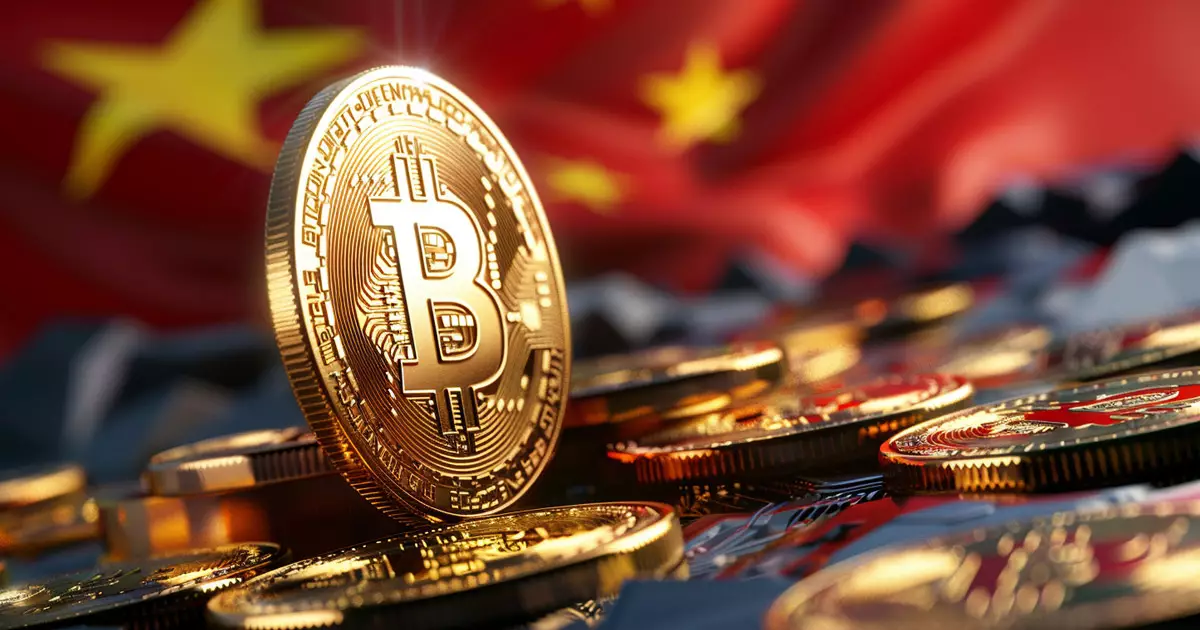In a world where the digital currencies constantly evolve, the potential ramifications of political decisions on cryptocurrency markets cannot be understated. Xiao Feng, the CEO of Hashkey Group, recently shared his views on how a pro-cryptocurrency administration in the United States could lead to significant changes in China’s regulatory stance on digital assets. In a revealing interview, Feng posits that the leadership in Washington, particularly under a renewed Trump administration, could catalyze a shift in how China engages with cryptocurrencies like Bitcoin (BTC).
Feng believes that if U.S. lawmakers enact clear and comprehensive regulations surrounding cryptocurrencies, there may be indirect pressure on China to reconsider its stringent policies. The historical context here is rich; China has taken a notoriously conservative approach toward digital currencies—restricting Initial Coin Offerings (ICOs) back in 2017 and subsequently banning crypto trading and mining in 2021. These earlier decisions were rooted in the government’s desire for financial stability and risk mitigation within its economy. However, Feng argues that as the U.S. navigates a more liberal policy landscape, it could prompt China to adjust its rigid framework for virtual currencies.
The Implications of Trump’s Crypto Agenda
Donald Trump’s campaign for the 2024 presidential election prominently features cryptocurrencies as a critical topic. He has made bold promises, including the removal of SEC Chair Gary Gensler and a complete overhaul of regulatory frameworks that he perceives as barriers to innovation in the crypto sector. Such aggressive posturing could expose a potential pathway for China to pivot its strategy on digital assets. Trump’s administration may prioritize the crypto sector, stirring both enthusiasm and apprehension internationally.
Should these proposed changes gain traction, they hold the possibility of fostering an environment where China may feel incentivized to explore regulated forms of digital currencies, particularly stablecoins. Feng emphasizes that stablecoins, direct reflections of real-world assets, might represent a promising avenue for global trade and commerce. They could serve as catalysts for cross-border transactions by stripping away the complications of traditional currency exchanges.
The Role of Stablecoins in Global Trade
Stablecoins have emerged as a critical ingredient in the evolving landscape of digital finance. Specifically, they promise enhanced efficiency in cross-border commerce, offering speed and reduced transaction costs. As highlighted by Feng, the adoption of stablecoins in global trade is on a steep upward trajectory, particularly in markets facing economic slumps and surging inflation. The value of the stablecoin market has surged, with its total capitalization nearing $165 billion, facilitating a staggering volume of transactions and, consequently, fostering wider acceptance.
The increasing transaction volume linked to stablecoins—over 20 million blockchain wallets engaging in related activities monthly—underscores the growing importance of these digital assets. This trend illustrates a burgeoning integration of cryptocurrencies into everyday financial transactions and a gradual normalization of digital currencies in various economies around the world.
As the narrative around cryptocurrencies continues to evolve, the relationship between U.S. policy and Chinese regulatory frameworks remains a critical focal point. If Feng’s predictions come to fruition, we could see an unprecedented moment in the digital currency arena where stringent regulations may soften under the influence of geopolitical dynamics. The possibility of China shifting toward adopting regulated stablecoins could not only reshape its economic landscape but also alter the global perception of digital currencies, making them a more recognized staple in modern trade. The onus is now on policymakers to recognize the ripple effects these decisions may have on the cryptocurrency ecosystem worldwide.

